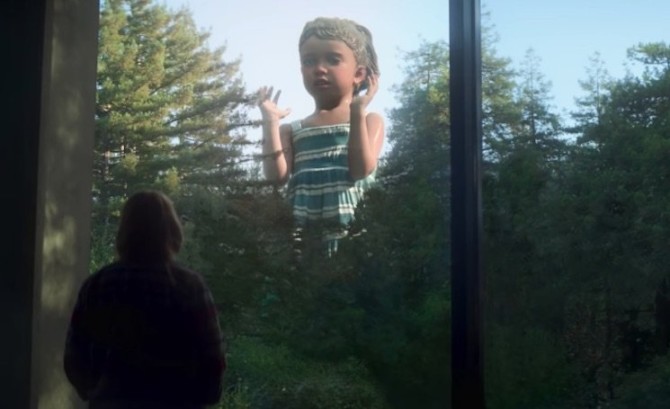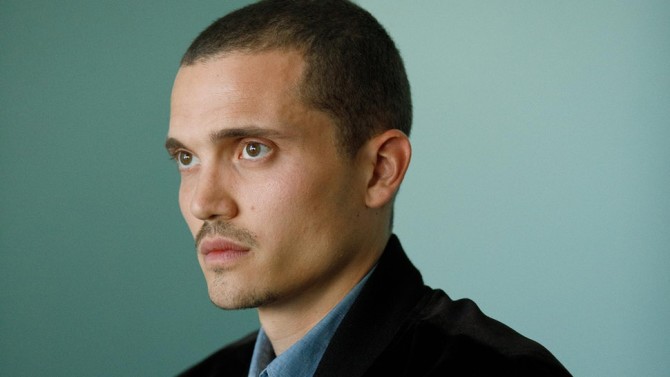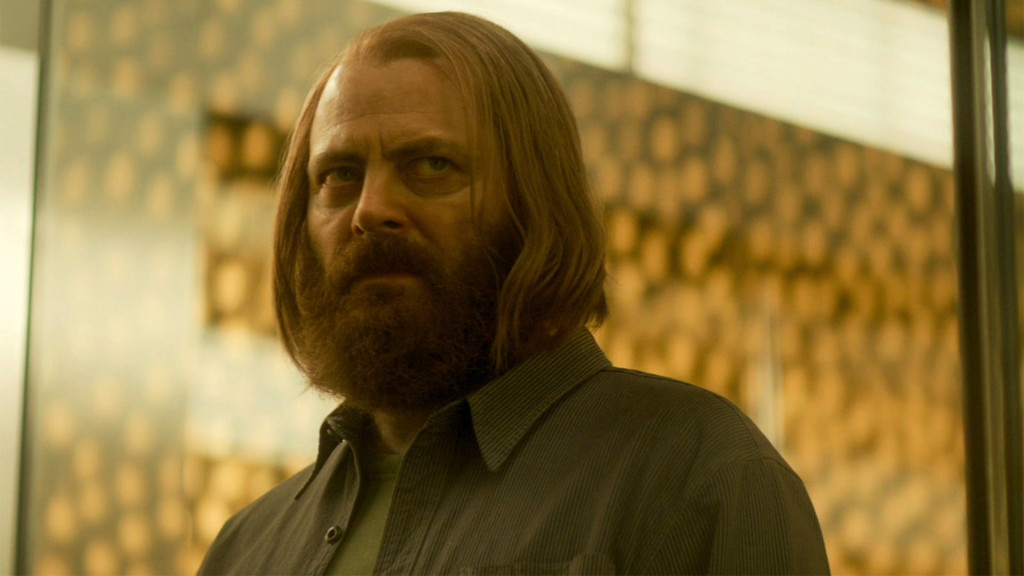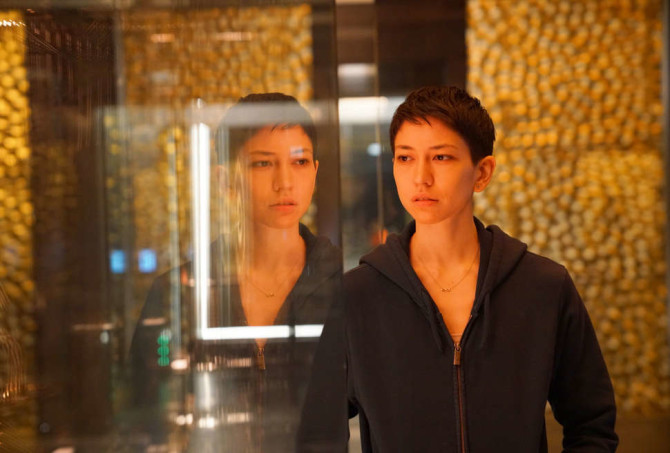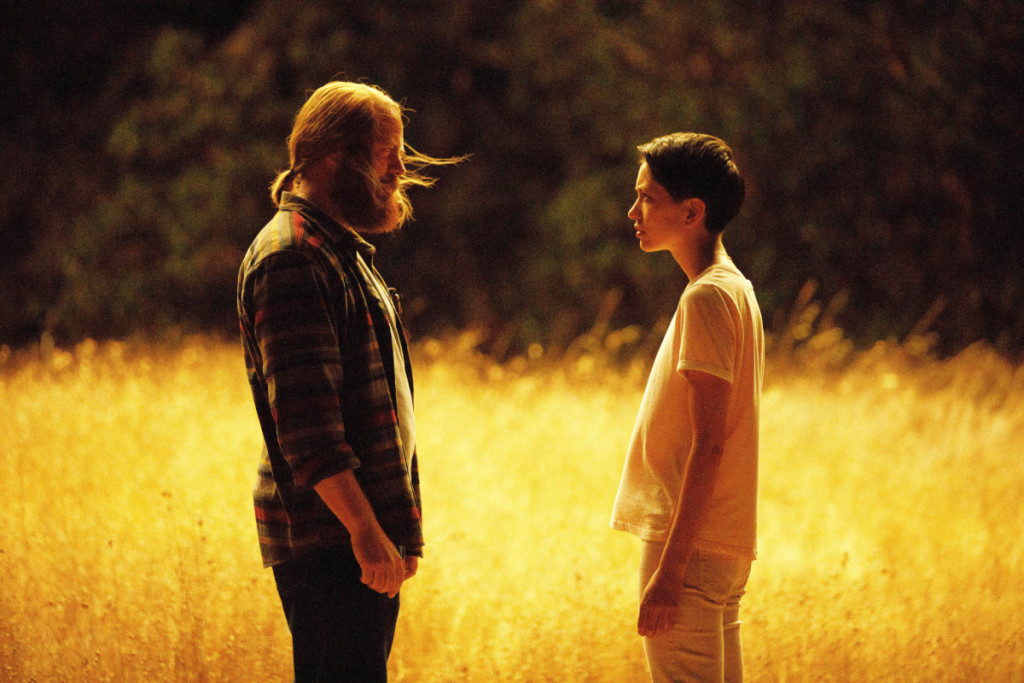Genre: TV Pilot – Drama/Sci-Fi
Premise: When a young genius Russian programmer is accepted into a tech company’s top secret program, codenamed “Devs,” he ends up getting more than he bargained for.
About: It’s so like Alex Garland to put his show on Hulu. I mean, who puts any show on Hulu?? They produce 3 shows a year and all of them blow. Garland is one of my favorite writers. He wrote the novel, The Beach, which still holds up today. He wrote and directed Ex Machina. He made the trippy sci-fi flick, Annihilation. He wrote 28 Days Later. Sunshine. Like a lot of creators, Garland is finally making the jump to television with his new show, Devs.
Writer: Alex Garland
Details: 1 hour
One of my favorite quotes came from Alex Garland when he was on the interview circuit for his first directing effort, Ex Machina. The journalist asked him, “You’ve been a writer for so long and here you’ve finally gotten behind the camera. I’d imagine it’s an invigorating change, being able to take your words and translate them to the images you had in you head. What is it you like about directing?” Garland’s response: “Nothing.”
I don’t know if Garland isn’t aware of how the promotional game works or if he just doesn’t care. Either way, I’ll follow him because, the way I see it, Garland is one of the top 5 writers in the business. He has an intrinsic understanding of what a hook is. But he never explores them in obvious ways. He’s like a non-smiling JJ Abrams. Literally. There is a GIANT LITERAL MYSTERY BOX in the show – the Devs building, a building that’s about to change the life of the man who’s been accepted into its program.
(SPOILERS)
Sergei works for a San Francisco tech company led by Forest, a reclusive tech CEO. After Sergei demonstrates to Forest that he is able to predict the movements of a single-celled organism seven seconds into the future, Forest informs Sergie he wants him to join Devs, his mysterious passion project.
Sergei and his girlfriend, Lily, are besides themselves. It’s impossible to get into Devs. That night, Forest takes Sergei to the Devs building, a giant oddly-shaped box in the middle of the forest surrounded by large gold pillars being used as shields to ensure that nothing can be digitally transmitted out of the building.
The inside is even more impressive, with an electromagnetic floating people mover that takes you to the inner offices of the building. There, Sergei is given his computer station and when he looks at the Devs code, he stares up at Forest in shock. “This can’t be real,” he says. Forest assures him that it is.
After Forest leaves, Sergei starts acting strange. He seems to be having an internal breakdown. Finally, we see him position his watch to face the screen. Sergei is digitally recording the code! Late that night, when Sergei leaves the building, he finds Forest waiting for him with his head of security, Kenton. After Forest tells Sergei he knows exactly what he did, it’s lights out for Serge. Kenton throws a bag over his head and suffocates him.
The next day, Lily, who also works at the company, comes looking for her boyfriend. She meets with Kenton, who tells her they’re lucky they have so many cameras all over the place as it will be easy to find out where he went. Sure enough, the cameras show Sergei leaving Devs, coming to the main campus, then simply heading off into the city. Kenton assures Lily that he’ll pop up sooner or later.
Later, Lily finds a strange game on Sergei’s phone. When she clicks it, it becomes clear it’s not a game at all, but rather a covert messaging system. Sergei, it turns out, was working for the Russians. Before Lily can process that, she’s called in to see Kenton again, who shows her a disturbing video. It’s Sergei. He came back, headed straight to one of the on-campus parks, then poured gasoline on himself and lit himself on fire. Lily can only watch with horror as her boyfriend commits suicide.
Garland is a writer who understands screenwriting. Period. He just gets it, man.
I want to draw your attention to two scenes in particular.
The first occurs after Forest’s head of security, Kenton, kills Sergei. The next day Lily comes to Kenton’s office asking if he knows anything about Sergei’s disappearance. Now we watched Kenton kill Sergei. But Lily doesn’t know that, of course. Garland has prepped the perfect scenario for dramatic irony.
As a reminder, dramatic irony is when we know something that a key character, many times the hero, does not. We know this dude killed Sergei but Lily does not, creating an underlying sense of anger and frustration that our hero, this person we care about, is being lied to. Any time you can get the reader feeling emotion – good or bad – you are doing something right. Because the main source of boredom is having zero emotional reaction to what you’re reading.
But Garland doesn’t stop there. He DOUBLES DOWN on the dramatic irony. During their conversation, Forest comes into the office. Kenton “informs” Forest that Sergei, Lily’s boyfriend, went missing after he left Devs last night. Forest feigns concern and asks what happened. Forest and Kenton then go through a little performance whereby they pretend to figure out where he might be. It’s like taking dramatic irony and hooking it up directly to a nuclear reactor.
For all you TV writers out there, dramatic irony is one of the most important skills you’ll draw upon. The reason for this is that there are lots more talking heads scenes in TV shows than features and dramatic irony is one of the easiest ways to make a talking heads scene interesting.
The next scene I want to draw your attention to is the scene where Sergei is killed. Sergei has just finished his shift in the Devs building, using much of that time to record the code via his secret watch-recorder. Sergei exits the building, which is in the middle of a forest, and is surprised when Forest emerges from the shadows (yes, Forest emerges from the forest).
Now Forest already knows he’s going to kill Sergei (or have Kenton kill him). When he reveals to Sergei that he knows Sergei recorded the code on his watch, it’s pretty much a done deal that Sergei’s going to die.
But where’s the fun in killing off a character the second we learn they’re going to be killed? Screenwriting is about suspending. You want to imply that something bad is going to happen and then you want to draw it out. The fun occurs in the audience squirming around during the ‘drawing out’ process. Which is exactly what happens here. Forest goes on an extensive monologue about how human lives are on rails and that they’re pre-determined to do what they do. Only after finishing his point does he order Kenton to kill Sergei.
But I’m not done documenting Garland’s genius. Garland uses a scene in the second episode to establish a pattern-disruption which ensures that audiences have no idea what to expect moving forward. That’s not talked about enough in dramatic TV writing. Most shows are predictable. The way you hook people is by taking major plot beats and mixing up the pattern of expectation. Sometimes you give them what they expect. Other times you don’t. This ensures that they never know what’s coming, which is key in one’s enjoyment of any story.
(spoiler) In episode 2, Kenton confronts Sergei’s Russian contact, Anton, in a parking garage at night. Kenton informs Anton that he knows he’s trying to get Lily to complete Sergei’s job and he wants him to stop. But unlike Sergei, Anton is not afraid of Kenton, and as the two continue their tense interaction, it’s clear that Anton has done his homework and knows everything about Kenton. By the end of their conversation, you’d think Anton even knew Kenton had followed him here. Then, in a flash, Anton whips out a knife and stabs Kenton in the gut. Shocked, all Kenton can do is flail. In that moment, we know that Kenton is going to die.
Sticking with the mantra that drawing big moments out is one of the keys to good writing, Garland milks the fight for all it is worth. As it teeters back and forth, Kenton surprisingly fights his way back to even ground. Anton is younger and stronger, but Kenton won’t go down easily. When it’s all said and done, Kenton surprisingly emerges as the winner, a bet we wouldn’t have taken at the beginning of the fight.
Why am I telling you all this? Because now Garland has established that you DO NOT KNOW what’s going to happen going forward. Sure, we knew Sergei was a goner. But with this fight, the winner wasn’t who we thought it would be. This means that every tense moment moving forward in the show, you’re going to be anxious. You’re going to be unsure. It can go either way. And that’s what makes any story exciting – the unknown. The main reason why there’s so much boring stuff out there is the predictability of the storytelling. You don’t get that here.
Notice none of what I’ve discussed even includes one of the coolest things about this show – the Devs project! What is it? What is it going to be used for? Is it just a camera into the past? Or can it do the same for the future? Is the goal to be able to travel into other time periods? Another mistake TV writers make is that they only focus on this plot stuff. But the cool plot stuff becomes a lot cooler when you have cool characters moving within it. That’s why this show is so great.
TV feels like the perfect landing spot for Garland. This guy explores complex themes. Complex people. Complex ideas. Film doesn’t do any of that well. Film is more about the ride. Even character pieces can only focus on one or two aspects of character growth in a film. TV allows you to take all those things and dig into them. And whereas many feature writers moving into TV give us shows that burn bright early but die after a few episodes, Garland is ready for this drawn out format. Remember that he started off writing novels. So he understands long-form storytelling better than most.
My only worry with Garland is that his stuff is a little TOO heady at times. Whereas JJ Abrams could learn a thing or two from Garland about sophistication in theme and character development, Garland could learn a thing or two from Abrams about embracing the fun parts of your idea more. The good news is, this show is on Hulu and Hulu has nothing going on so you’d think they’d greenlight a second season just based on that. You have a cool hip cinephile-loved director making a show for you. Keep him happy.
I know I was happy watching this. So much so, I can’t wait for the rest of the season.
[ ] What the hell did I just watch?
[ ] wasn’t for me
[ ] worth the stream
[x] impressive
[ ] genius
What I learned: One of the most misunderstood aspects of screenwriting is when to write monologues. There are two assumed places where one must do so. The first is when a character explains some deep affecting story from their past that shaped them. These monologues tend to start like this: “When I was a kid, my dad used to say…”. The second occurs near the end of the movie where the main character says to either the co-lead or a group of people what they learned and try to encapsulate the message of the movie in one big speech. While the latter is preferable to the former, I’d advise avoiding both. They’re cliche-traps that scream “Newbie writer here!” The best time to use monologues is in the example I used above. Create a sense of impending doom then draw the scene out. Whatever you want to say, have the controlling character (in this case, Forest) deliver it in a monologue during that moment. The issue with monologues is that they are inherently inorganic. People rarely stop and give some grand sweeping speech about something. The impending sense of doom hides that inorganic component better so you don’t notice it as much.

